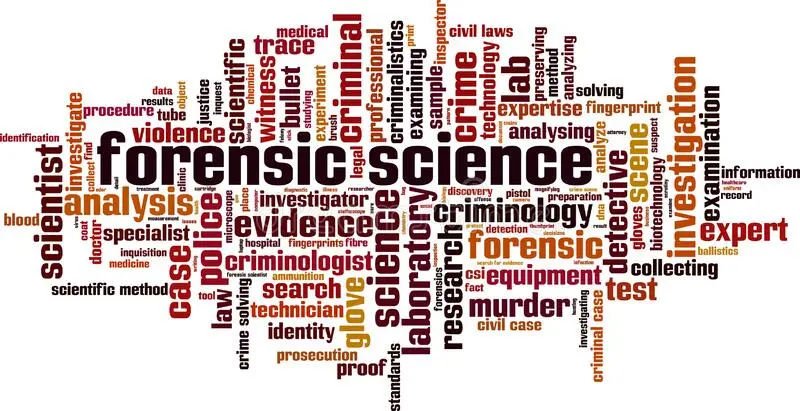
Navigating the Forensic Science
“In the act of murder, there is a weapon, a crime scene, and a body, all vital evidence in the hunt for the killer. It is a game of cat and mouse between police and murderers that used to favor the criminal. But then something happened that swung the odds in favor of justice: the arrival of forensic science”.
–Gabriel Weston
On December 14, 1995, Krystal Beslanowitch told her boyfriend, that she was going to get some food at a Local Circle K near Salt Lake City, Utah.
She never returned home…….
Her body was found naked and beaten to death with a rock and the granite that crushed her skull. Police had alleged the murder weapon was “a rock” but without blood, hair, or saliva sample, and thus DNA could not be collected. The investigation took place for two years but without evidence ran dry with no luck in finding the criminal.
Because of technological advancements between 1995 & 2013 the M-Vac which is a wet-vacuum-based forensic DNA collection device this case concluded. The word forensic comes from the Latin term forensic meaning “of or before the forum”. In the modern-day, it can be termed as “pertaining to the court of law”.
Forensic science is a branch of science that deals with the application of scientific methods of techniques to matter under investigation by a court of law.
And do you know?
Archimedes is regarded as the first forensic scientist.
Forensic scientists are those who help to amass, conserve and evaluate physical evidence during an investigation.
The new and advanced techniques of forensic science have played a vital role in solving the Kotkhai gang rape and murder case of 16 years Gudiya. It took nine months for the police to solve the case and this was possible only with the help of forensic scientists led by the CBI.
A death investigation is an arduous task and it takes an immense amount of time to read and take in the crime scene. Death is suspicious if it is unexplained in the early investigation and is treated as a homicide until proven otherwise. The three critical components of any death investigation are medical/ social history, examination of the body, and scene investigation.
Forensic Science plays an important role in crime scene investigation. It is used extensively to solve cases that fall under criminal law. Apart from that, it is also used to solve civil law cases.
It is a good option for oversaturated courses such as engineering, medicine, or management, and it also generates an ample amount of job opportunities. It gives access to govt. jobs, private sector joints, and self-employment opportunities.
Explore the fascinating world of Forensic Science from A to Z in our comprehensive guide. Discover its various disciplines, techniques, and real-world applications. If you’re considering a career in Forensic Science, this guide also offers valuable insights and career counseling to help you make informed decisions.
What will your day-to-day task include?
- Blood grouping and DNA profiling.
- Analysis of fluid and tissue samples of traces of drugs and poison.
- Examining splash patterns and the distribution of particles.
- Analysis of handwriting, signatures, ink & paper….etc.
- Providing expert advice on explosives, firearms, and ballistics.
- Researching and developing new technologies.
- Recovering data from mobile phones, computers, and other electronic equipment.
- Attending crime scenes, such as murder.
- Giving impartial scientific evidence in court.
Careers in Forensic Science
- Forensic expert
- Crime scene investigator
- Crime reporter
- Handwriting expert
- Forensic Linguistic/Geologists/ Pathologist
- Forensic artists and sculptors.
- Investigating officer
- Forensic Scientists
- Law Consultants
- Fingerprint expert
- Forensic photographers/Chemists/Anthropologists
Specialization courses offered
- Forensic Biology
- Forensic Ballistics
- Forensic Botany
- Forensic Toxicology
- Clinical Forensic Medicine
- Forensic Entomology
- Forensic Psychologist
- Cytology
Where can you work?
- Intelligence Bureau
- Hospitals
- Law firms
- Central govt. Forensic science lab
- Quality control Bureau
- CBI
- Police Department
- Defense/Army
- Private Detective Agency
- Banks
Top Forensic Science Colleges in India
- FS Indian Education Department, Pune
- Lady Hardinge Medical College, New Delhi
- All India Institute of Medical Sciences, New Delhi
- Department of Forensic Sciences (Dr. B.R. Ambedkar University), Agra
- Institute of Forensic Science, Mumbai
- Lok Nayak Jayaprakash Narayan National Institute of Criminology & Forensic Science (LNJN NICFS), New Delhi
- Institute of Forensic Sciences (Gujarat Forensic Sciences University), Gandhi Nagar
- Centre for Cyber Forensics and Information Security (University of Madras), Chennai
- Government Institute of Forensic Science, Aurangabad
- Sam Higginbottom Institute of Agriculture, Technology, and Sciences (SHIATS), Allahabad
- St. Xavier’s College (University of Mumbai), Mumbai
Top Universities for Forensic Science Abroad
- UC Davis
- George Washington University
- Michigan State University
- Virginia Commonwealth University
- Pennsylvania State University
- Texas A&M University
- George Mason University
- University of Florida
- Durham University
- University College London
- University of Cambridge
- University of Oxford
- University of Dundee
- University of Glasgow
- University of Central Lancashire
- Coventry University
- University of Liverpool
Required Skills to Become a Forensic Scientist
Forensic science technicians should have the skills like Collecting, identifying, classifying, and analyzing the physical evidence related to criminal investigations.
An Aspirant should have strong Technical Skills, Analytic skills, Keen observations, and knowledge of various fields in science which helps in identifying the evidence, gathering the important information to arrest the culprit, and interrogating them regarding the crime.
Want to know more? Get our free career counseling session.
Book Your Consultation Call Now
Job Prospects in the Field of Forensic Science
There is no place in the world that does not require forensic scientists. Demand is normally directly proportional to the crime rate in a particular area. In India, the major urban centers tend to have a higher demand for forensic scientists. Mumbai has the highest number of employed forensic technicians in the country.
“Sherlock: We have no evidence, no forensics, nothing we don’t know what’s going on!
Watson: Then why don’t we pin it on the black guy?”
This might be the result for most of the cases if not for evidence.
Unlike in the movies, the days in the life of real forensic scientists are anything but predictable and stressful. But it is important to solve the case.



